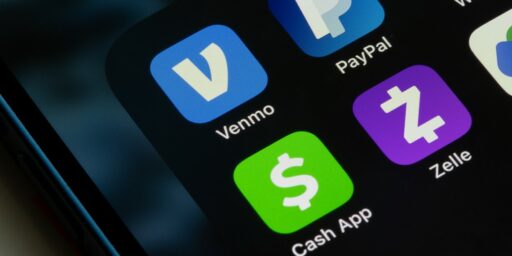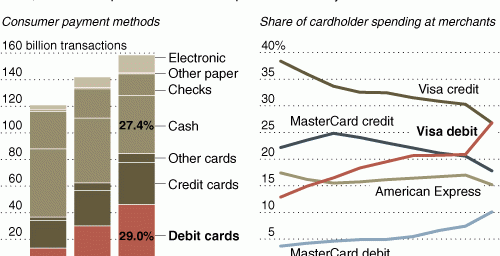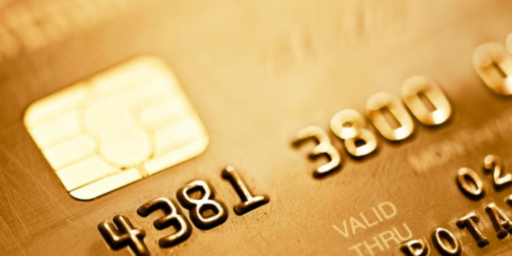Google Launching Checkout Online Payment Service
Google is positioning itself as the dominant player in the electronic payment business.
Google Inc. on Thursday will unveil a much-anticipated payment service that aims to make online shopping more convenient and give advertisers another reason to pour more money into the Internet search leader.
As Google attempts to boost its already lofty profits and become an even more prominent player in e-commerce, the Mountain View, Calif.-based company risks alienating one of its biggest advertisers — online auctioneer eBay Inc., which runs the Internet’s leading payment service, PayPal. Although Google doesn’t view its service as a PayPal competitor, there is no question it poses a long-term threat to eBay, said Internet market analyst Greg Sterling. “Any time Google does something like this, it has the potential of turning into a big deal,” Sterling said.
At least two merchants, Starbucks Corp. and Buy.com, that have signed up for Google’s new service also accept PayPal, which eBay bought for $1.3 billion in 2002.
EBay spokeswoman Amanda Pires declined to comment on Google’s entrance into online payments, but the San Jose, Calif.-based company signaled its concerns about the search engine’s expansion last month when it formed an alliance with Yahoo Inc. that will make PayPal the preferred payment provider on the Internet’s most trafficked Web site.
Google has been testing its payment service, called “Checkout,” for nearly a year, spurring widespread speculation among Internet analysts and investors.
The looming showdown in online payments pits two of the Internet’s biggest success stories. Google earned $1.5 billion on revenue of $6.14 billion last year while eBay made $1.1 billion on revenue of $4.55 billion.
Google’s service is designed to serve as an electronic wallet that will enable consumers to buy products and services from a bazaar of merchants without repeatedly entering the same personal and financial information at each store. Users with a Google account simply enter a credit card account number along with a few other details and the company will deliver the payments to any of the participating merchants, which must advertise on the search engine to participate.
The mere fact that “Google” is attached to the service as a brand name gives it a huge advantage. Still, it’s unclear to me what advantage this offers vice PayPal or various online payment services like Paytrust that allow users to send electronic checks to anyone.
UPDATE: Business Wire provides additional detail:
Google Inc. today announced the launch of Google Checkout (http://checkout.google.com), a checkout process that makes online shopping faster, more convenient and more secure for Google users. Google Checkout offers an easy and trusted checkout option that enables shoppers to purchase from participating stores with a single Google login. It also works with Google’s search advertising program, AdWords, to help merchants acquire new customers and process all or a portion of their Checkout sales for free.
“By integrating the checkout process with search and advertising, we’re helping our users complete the cycle of searching, finding and buying,” said Salar Kamangar, Vice President of Product Management at Google. “In the offline world, shoppers don’t tolerate long lines and tedious data entry just to buy something. They shouldn’t have to in the online world either. Google Checkout simplifies and improves the online purchase experience for both consumers and merchants.”
ZDnet’s Donna Bogatin is not impressed, charging “predatory pricing.”
As I postulated Tuesday in my “Google GBuy online payment system to lock-in AdWords advertisers and usurp consumers via discounts and rebates “, Google has officially launched its ecommerce payment service with a predatory pricing model to lock in its advertisers, increase advertiser spend with Google and attract new Google advertiser customers.
Google’s new service enabling consumers to make purchases from online stores using payment and shipping information they keep on file with Google, officially launched with the name of Google Checkout, rather than the rumored GBuy.
Google Checkout, as reported by The New York Times, is priced at rates which undercut current credit card processing fees….
Those bastards! How dare they provide lower prices and competition for the credit card industry?!






I’m confused (no snickering).
“Users with a Google account simply enter a credit card account number …”
“Google Checkout, as reported by The New York Times, is priced at rates which undercut current credit card processing feesâ?¦.”
If Google is using current credit card accounts, how are they undercutting current credit card processing fees? I can see how they could offer this with no premium (since the ad revenue can cover the costs of processing for them), but I am not sure how they could undercut since I would think that the credit card companies would expect the same fees.
Donna Bogatin’s claims are somewhat dubious in that the notion of predatory pricing is an empirical one as per the quote she cited. That is, for low prices to be predatory (at least as a necessary condition) the recoupement phase earn more during the low price phase.
I’d also add that predatory pricing isn’t even necessarily predatory if the above condition is met. After all, what if the competition isn’t driven out of business (i.e. the pricing tactics result in no predation–i.e. loss of a competitor)? What if it is to get past some threshold to justify the fixed costs or some such. The condition she outlined strikes me as a necessary one, not a sufficient one.
Of course, I’ll have to check Tirole when I get back in the office on Monday to make sure.